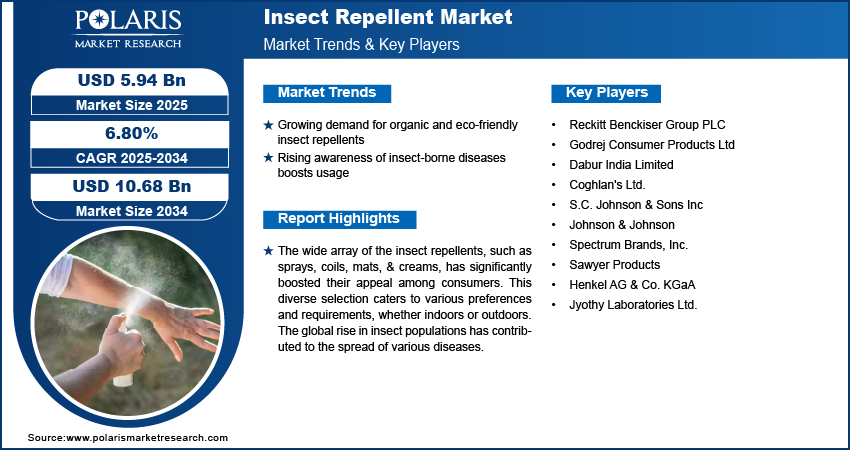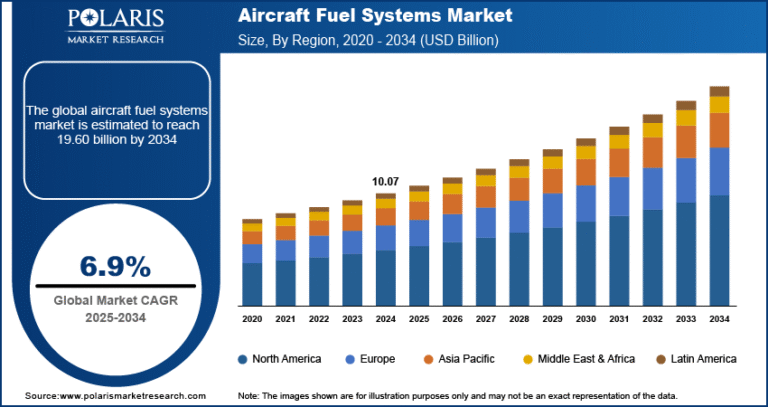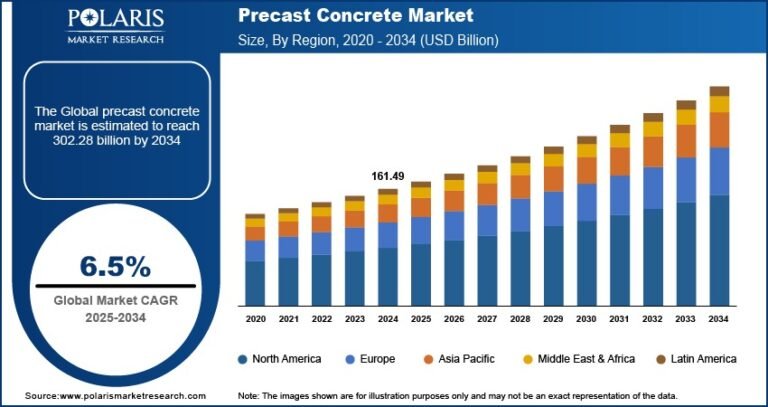Insect Repellent Market Projected to Reach USD 10.68 Billion by 2034, Growing at a CAGR of 6.8%

The global Insect Repellent Market was valued at USD 5.57 billion in 2024 and is projected to reach USD 10.68 billion by 2034, growing at a CAGR of 6.80% from 2025 to 2034. Market growth is driven by the rise in outdoor recreational activities, increasing travel to tropical regions, and heightened public health initiatives targeting the prevention of vector-borne diseases.
Key Market Insights & Trends
- Mosquito Repellents Dominate
Mosquito repellents account for over 50% of the total market share due to the high prevalence of mosquito-borne diseases such as malaria and dengue. - Natural and Plant-Based Products Rising
Consumers are increasingly opting for plant-based and DEET-free alternatives, driven by health and environmental concerns. - Innovation in Delivery Methods
The market is seeing a surge in innovative formats like wearable repellents, patches, and long-lasting sprays that enhance convenience and effectiveness. - Asia Pacific Leads Growth
Asia Pacific dominates the market due to high insect-borne disease rates, large populations, and supportive public health initiatives, especially in countries like India and China.
Market Size & Forecast:
- Market size value in 2025 – USD 5.94 billion
- Revenue forecast in 2034 – USD 10.68 billion
- CAGR – 6.80% from 2025 – 2034
Request for Free Sample: https://www.polarismarketresearch.com/industry-analysis/insect-repellent-market/request-for-sample
Market Growth Drivers
- Rising cases of vector-borne diseases (malaria, dengue, Zika virus)
- Increased outdoor activities, tourism, and travel to tropical areas
- Government campaigns promoting personal protection products
- Growing health consciousness and demand for chemical-free repellents
- Technological innovation and product diversification by key players
Regional Insights – Insect Repellent Market:
Asia Pacific Leads the Market: Asia Pacific holds the largest market share due to high incidences of mosquito-borne diseases and strong demand in densely populated countries like India and China.
North America and Europe See Steady Growth: These regions are witnessing consistent demand driven by outdoor lifestyle trends, travel to tropical regions, and increasing consumer preference for natural and DEET-free repellents.






